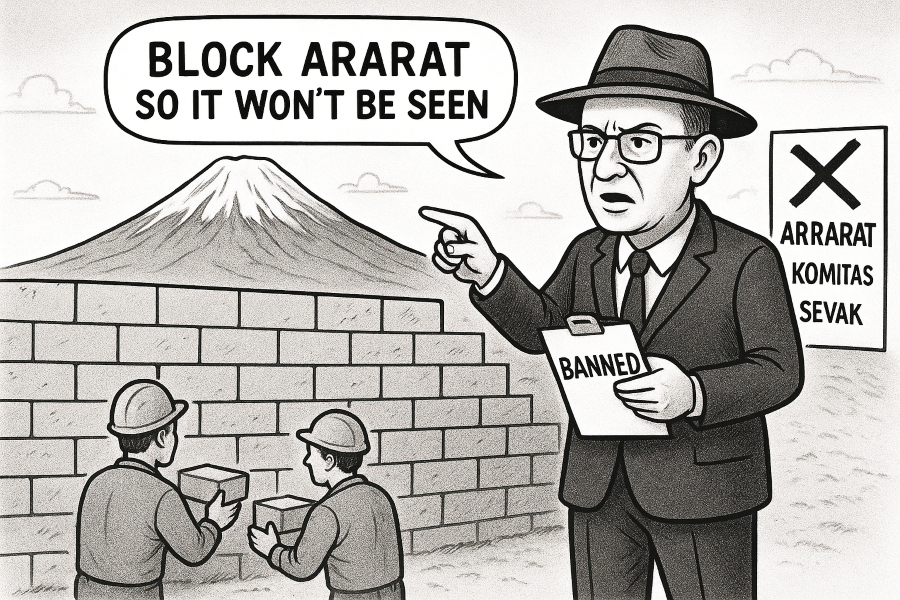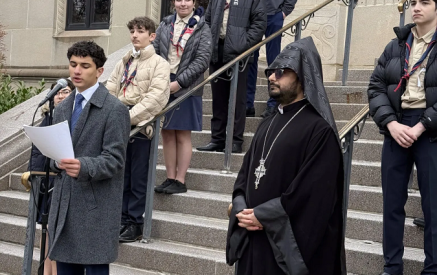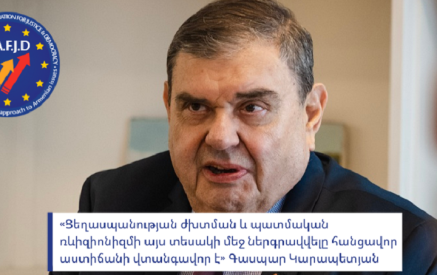One of the main issues in Armenia’s current foreign and domestic policy is “not to irritate the neighbors.” Unfortunately, we have been saddled with rather “nervous” neighbors — you never know what might upset them tomorrow or the day after, what might act as a kind of “red rag” to a bull.
They can become extremely agitated if they see anywhere the biblical Mount Ararat. Does this apply to all literary works written by Armenians, to Armenian painters’ canvases, to Armenian composers’ melodies? (Let us recall, for instance, Narekatsi’s hymn “The cart descended from the mountains of Masis.”) Perhaps all those works could be considered “propaganda of war and revenge,” “grief and suffering,” a “pathetic form” — since these “negative phenomena” are precisely what the draft government decision “On the Aesthetic Localization and Support of Real Armenia” condemns.
The neighbors may also be irritated by any mention of an Armenian settlement in Western Armenia or Artsakh, as well as by the very names “Western Armenia” and “Artsakh.” Suppose I write that Armenians lived in Artsakh for millennia — something repeatedly affirmed up until 2020 by members of the Civil Contract party and their leader. Would that now be considered war propaganda? And does it then follow that until 2020 the very instigators of war were the Civil Contract party?
Let us now look at international practice. The Greeks say, for example, that Ephesus is a Greek city, the Germans consider Königsberg part of East Prussia, the Japanese lay claims to two of the Kuril Islands. (One could cite dozens of such examples worldwide.) This no doubt irritates the Turks and the Russians, respectively. But the governments of Greece, Germany, or Japan do not issue “aesthetic localizations,” urging their artists not to speak about these matters.
Read also
…It is not excluded that our neighbors are also irritated by the fact that we are Christians. Perhaps, taking that into account, we should change our religion too, and replace the Mother See with the “Ejmiatsin Qadiyat” (Islamic administrative-religious unit, similar to a diocese)— as the spiritual leader of the Azerbaijanis would wish.
Aram Abrahamyan
The image was created using artificial intelligence tools
























































